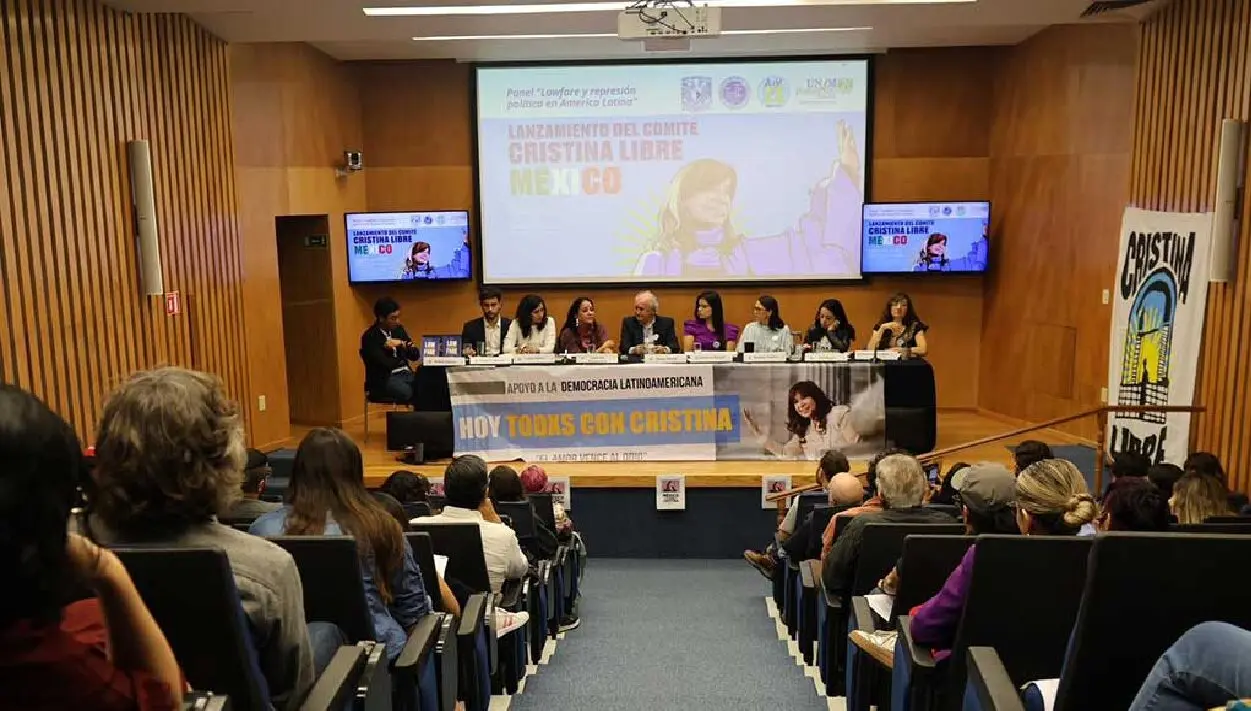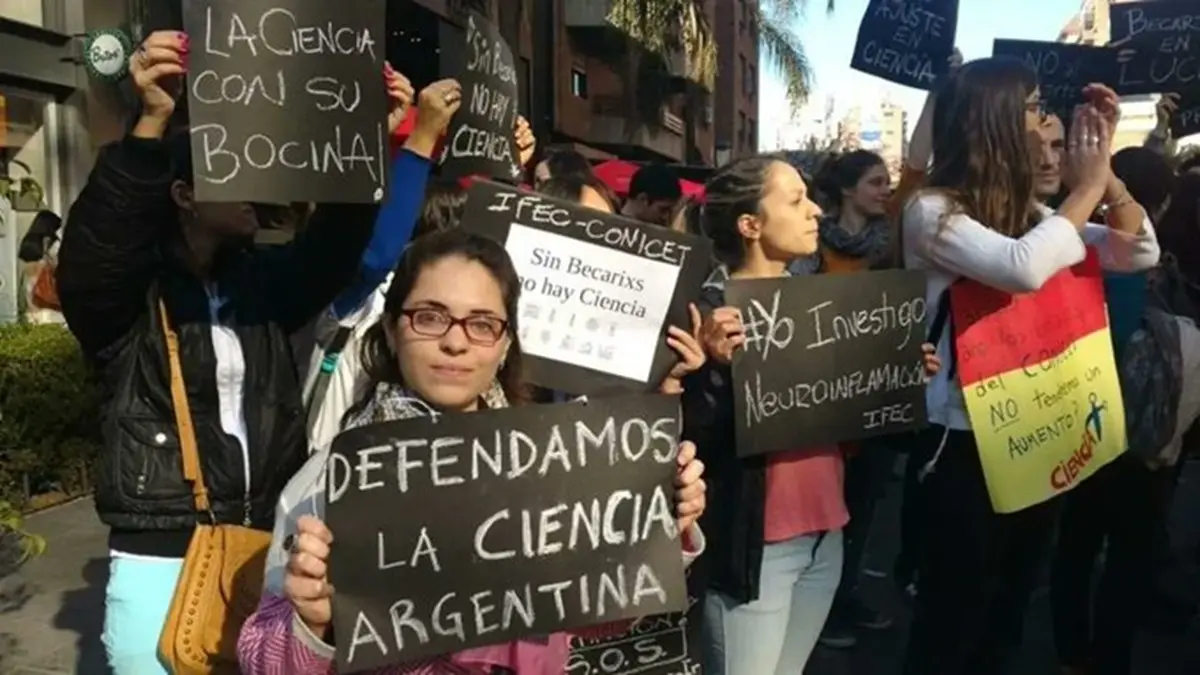The Price of Adjustment: Health and Retirement Policies Under Milei’s Government in Argentina

August 7, 2025 Hour: 1:55 pm
Since December 2023, Javier Milei’s government has implemented a series of reforms that are substantially altering Argentina’s public policies.
His so-called “chainsaw” approach aims for deep fiscal adjustment, centered on reducing state spending in sensitive areas such as public health, pensions, and social benefits for people with disabilities.
These measures, justified from a neoliberal perspective that prioritizes fiscal balance, have had a direct and considerable impact on vulnerable sectors, sparking concern and social mobilizations.
Measures in the Health Sector
One of the sectors most affected by Milei’s administration is public health. The allocated budget suffered a severe cut, equivalent to nearly 50% in real terms compared to 2023, leading to a significant weakening of healthcare infrastructure and the quality of care.
Key institutions such as the National Cancer Institute and the National Cardiovascular Diseases Institute were dissolved or downgraded to minor departments within the Ministry of Health, reducing their operational capacity and impact on specialized research and treatment.
Additionally, critical national immunization campaigns were suspended, leading to preventable outbreaks of diseases such as measles, tuberculosis, and a concerning rise in HIV and syphilis cases.
This healthcare crisis is particularly severe in a context where the public system is the primary source of care for most of the population.
Healthcare workers have also been hit hard. In recent months, mass layoffs have been documented, with over 2,000 public employees removed from the public health system, including hundreds of professionals working in essential rehabilitation and disability support programs.
For example, the Incluir Salud program faced defunding, leaving over 180,000 beneficiaries without coverage and resulting in the dismissal of 450 specialized workers.
The government also eliminated free medications for retirees and pensioners through PAMI (the national social insurance agency), now requiring beneficiaries to prove indigence status to access medications at no cost.
Additionally, the deregulation of pharmaceuticals and the simplification of procedures for importing medical supplies have favored the covert privatization of the system, limiting access for the most vulnerable sectors.
To defend these measures, Milei’s administration argues that public health spending was inefficient and that some services were redundant or subject to misuse.
From their perspective, healthcare should be understood as a service that can be monetized, not as a universal right guaranteed by the state, thereby promoting greater private sector involvement and corporate donations.
Measures Affecting Retirees and Pensioners
Retirees and pensioners are among the groups most harmed by these policies. Since Milei took office, protests over insufficient income and payment delays have become recurrent.
The National Social Security Administration (ANSES) has suffered internal budget cuts that complicate the efficient processing of benefits, causing delays of up to a month in payments.
Recently, the president vetoed a law that included a 7.2% increase in pensions, the reinstatement of a pension moratorium, and the expansion of a pension bonus, key resources to compensate for the declining purchasing power of the elderly.
The pension moratorium is especially important in Argentina, where a considerable portion of the workforce is informal and cannot document the 30 years of contributions required to retire. This mechanism allowed workers to “purchase” missing years and secure a dignified pension.
The presidential veto was justified on fiscal balance grounds, claiming that these increases would raise public expenditures by trillions of pesos and jeopardize the government’s priority economic targets.
Milei and his team labeled opposition initiatives as irresponsible, accusing critics of politicizing what they call an unsustainable pension system.
These measures have worsened the financial and social situation of retirees, who face persistent inflation that erodes their income and makes access to food and medicine difficult.
Recent data shows that over 70% of retirees live below the poverty line, a situation that fuels growing concern and keeps social protests active.
Social and Economic Impact
The reforms implemented, aligned with the philosophy of “zero deficit” and state reduction, are severely hitting the essential pillars of Argentine society: public health and social security.
The reduced access to these services exacerbates inequality, indirectly benefiting private economic sectors and deepening the vulnerability of millions of citizens.
Unions and social organizations have repeatedly denounced the deterioration caused by these policies, holding the government responsible for rolling back social rights and general welfare.
The loss of personnel and budget in healthcare not only affects coverage but also the quality of services, with direct consequences for the daily lives of the elderly and people with disabilities, who are the primary users of the public system.
The increasing commodification of healthcare and pension services risks social cohesion and widens the economic gap between classes.
The constant rise in prices, the insolvency of wages and pensions, and the disguised privatization of basic services exacerbate social exclusion, creating fertile ground for conflict and structural poverty.
Conclusion
The austerity measures adopted by Javier Milei’s government have deepened the public health crisis and worsened the situation for retirees and people with disabilities.
Justified by the pursuit of fiscal balance, these policies restrict fundamental rights and increase social vulnerability, confirming a shift toward the commodification of basic services.
In a context of inflation and labor precarity, Argentina’s challenge is to restore a model that ensures health and social security as universal rights, essential for sustaining social justice and the country’s cohesion.
Author: Silvana Solano
Source: TeleSUR






